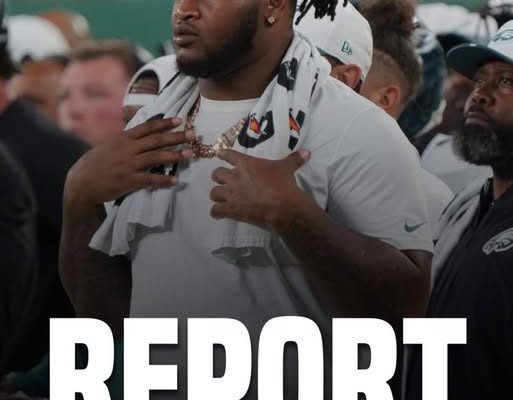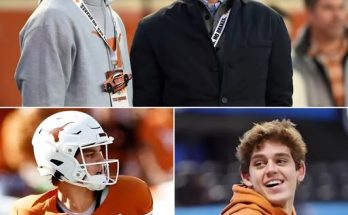It was one of those chaotic opening-night moments in the NFL that had fans gasping. In the season opener against the Cowboys, Eagles defensive lineman Jalen Carter was ejected just six seconds into the game—before a single snap was played—after spitting on Cowboys quarterback Dak Prescott. The league, taking its stance on sportsmanship seriously this season, ruled that Carter’s ejection would count as a one-game suspension and fined him his Week 1 game check—$57,222—declaring that the suspension had effectively already been served.(Reuters, AP News, Bleeding Green Nation, NFL.com, PhillyVoice, ESPN.com)
The reaction was swift and loud from both the league and fans alike. The NFL’s statement made it clear that disqualifiable, non-football conduct would not be tolerated. “Because Carter was disqualified before participating in a single play, the suspension is considered to have been served in Week 1 and he will forfeit his game check,” the league said, noting that Carter and the NFL Players Association would not appeal the ruling.(NFL.com, Reuters, Bleeding Green Nation)
To put the incident in context, earlier in that moment, Prescott had appeared to spit near Carter while addressing his offensive line in the huddle—not directly at him, according to Prescott—sparking a confrontation that escalated quickly. Carter responded by spitting on Prescott, leading to his immediate ejection for unsportsmanlike conduct.(People.com, The Washington Post, The Guardian)
As the Eagles rallied to win that game 24–20 in spite of the disruption, Carter issued a heartfelt apology: “It was a mistake that happened on my side. It just won’t happen again,” he said, acknowledging how his actions unfairly impacted his team and their fans.(Reuters, People.com, AP News)
Now, as the dust settles and attention turns toward the Eagles’ Week 2 matchup—an electric rematch of last season’s Super Bowl, set to take place in Kansas City—Carter is cleared to play. The timing couldn’t be more critical, as his presence could significantly bolster Philadelphia’s defensive front against a familiar opponent.(Reuters, AP News, NFL.com, Bleeding Green Nation, ESPN.com)
Some might see this as a fortunate turn for Carter—avoiding downtime and staying in the game—while others might argue the fine alone doesn’t sufficiently deter this kind of behavior going forward. The NFL, however, seems to be setting a precedent: disrespecting the field, the opponent, and league standards carries real consequences—monetary and reputational.(AP News, ESPN.com, PhillyVoice)
Moreover, scrutiny hasn’t abated. Eagles head coach Nick Sirianni has remained firm that any team-internal discipline will stay private: “Everything, every conversation, whether it’s a personal conversation, a disciplinary thing, all those things will always be handled privately.”(ESPN.com, Reuters)
As fans digest what just happened, several questions pop up: Does a fine equal to a pay check send a powerful enough message? Does counting an ejection as a suspension set a fair precedent only because no actual play took place? Are internal team consequences just as important—or more so—than league fines? And beyond all that, how does this shape Carter’s public and professional image now? His past—legal troubles from college and previous on-field penalties—adds further layers to the scrutiny.(Wikipedia, AP News, CBSSports.com)
But amidst all the debate, Carter’s statement of remorse may offer a starting point for redemption. Some fans sympathize, calling it a “human mistake,” while others see it as another example of poor judgment from a player already walking a tightrope. What do you think?
Should the NFL’s decision stand as a firm yet fair punishment, or should more severe action have been taken? Would a full one-game ban have been more appropriate—even if no snap was played? Do you think Carter will bounce back and prove himself on the field, or will his reputation be overshadowed by this moment?
Let’s talk about it. Feel free to leave your thoughts below—real talk, respectful debate, fan perspective—anything goes right here. What should the message to players be? And more importantly, to you as fans, what kind of accountability do you expect from the league and from players like Carter?
Your voice matters. Jump in, share your take—because in moments like this, fan engagement shapes the narrative too.



